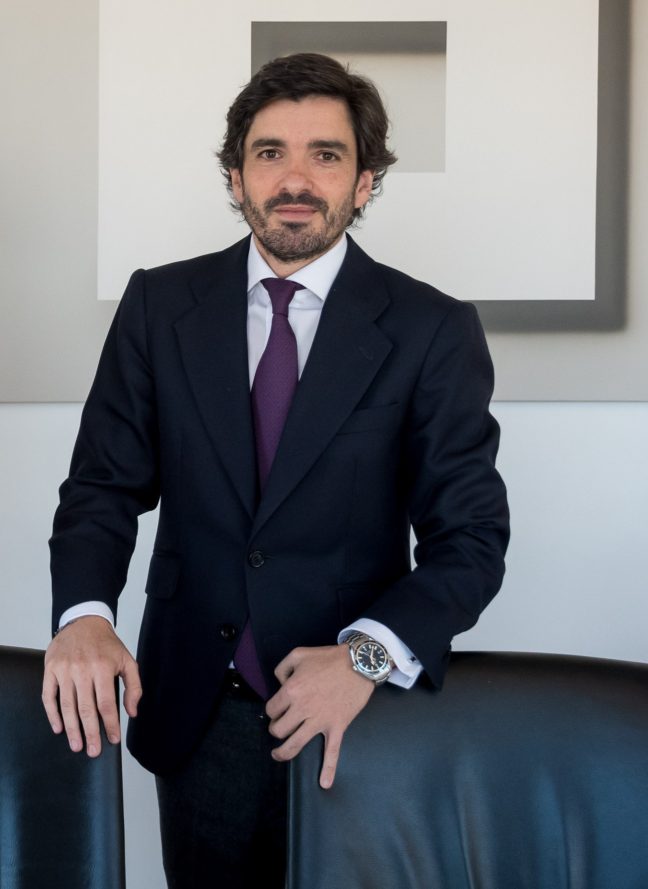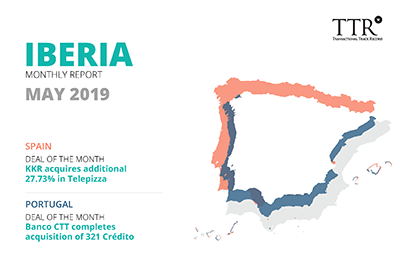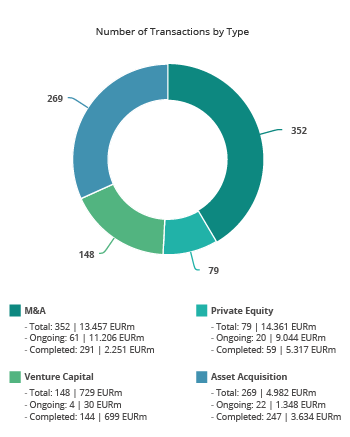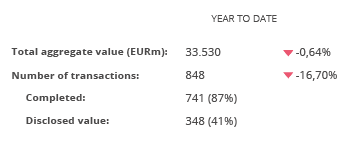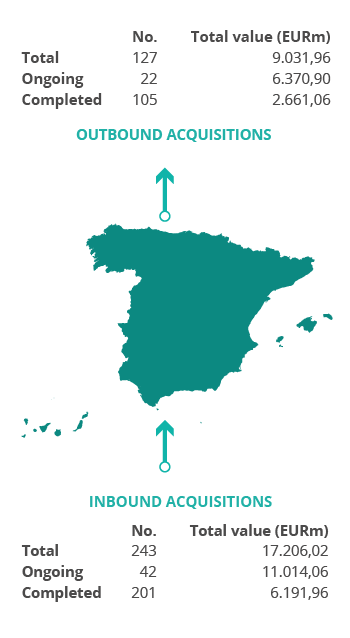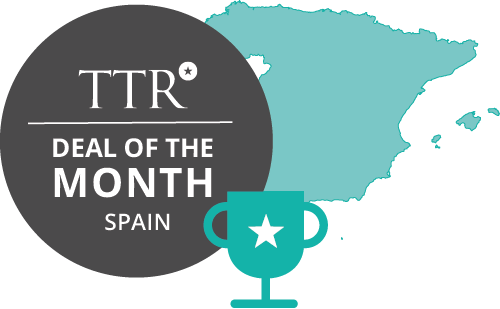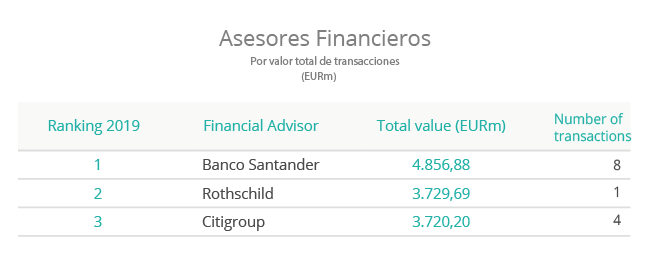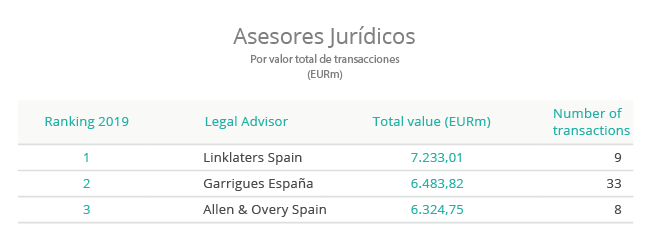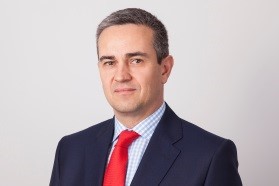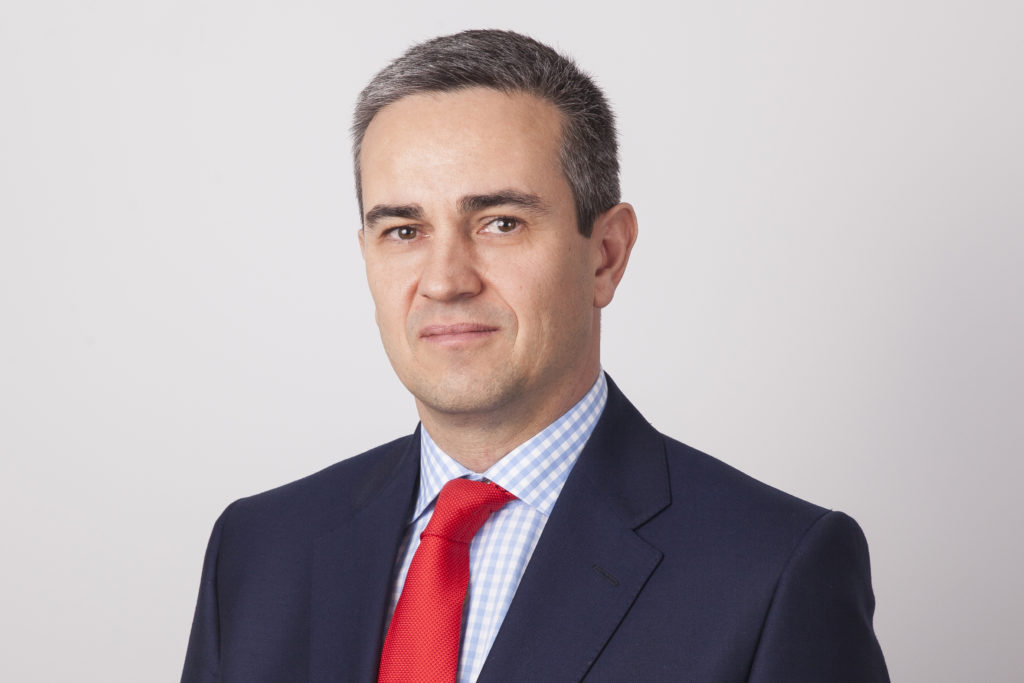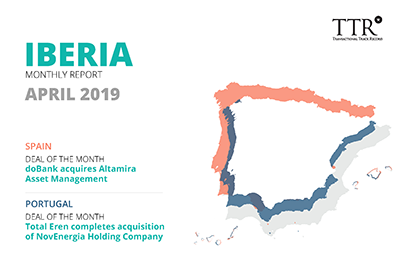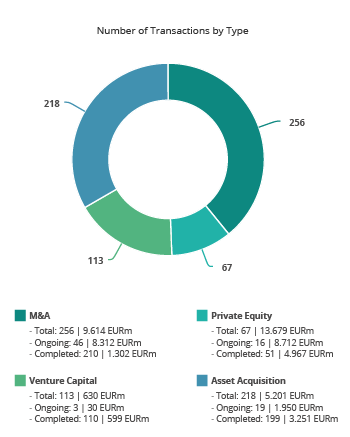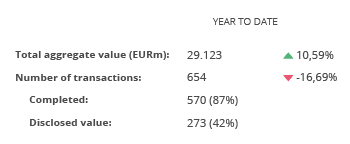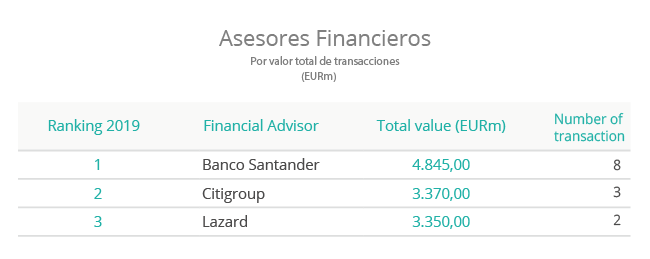TTR DealMaker Q&A with Gómez-Acebo & Pombo Spain, Partner Iñigo Erlaiz Cotelo
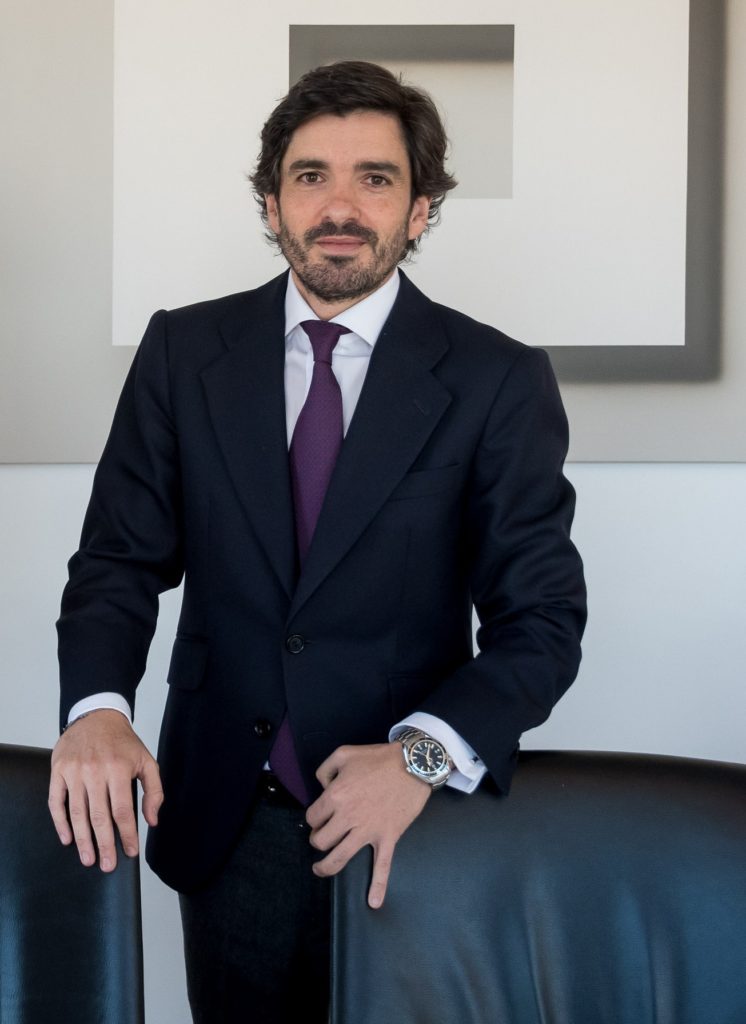
Iñigo Erlaiz Cotelo is Partner of Goméz-Acebo & Pombo Spain, Head of Corporate and M&A from February 2016 – specializes in corporate, commercial and M&A transactions, notably involving private equity and restructuring and insolvency-led transactions. He is a member of the Board of Directors of the firm. As to industry sectors he specializes in food, retail, and manufacturing.
TTR: How would you describe the M&A market in Spain year-to-date in 2019?
We are seeing a high amount of activity. While it’s true that the rate has not been steady, slowing down to a certain point prior to the election and/or caused by news that has generated uncertain macro conditions, in general, we are seeing a lot of transactional activity. This activity has ramped up over H1, driven by abundant liquidity and low rates that favour access to financing. As this should continue, we expect H2 to have a similar level of activity.
TTR: As an expert in Retail, Insurance and Pension Funds, how do you expect these sectors to perform? What is your growth forecast for these sectors in Spain in the medium-to-long term?
These are sectors that are going through a transformation process. In the retail sector, we are seeing movements arising from the search for new models and the departure of existing models (investment in companies with a technological base and restructuring of traditional business). In the insurance sector, there has been a lot of activity stemming from the reorganisation of bancassurance agreements. Also, there are cooperation agreements and investments that allow for progress in the digitalisation of the sector. It is still a fragmented sector, where a concentration process is pending, which will arrive sooner or later (I think via an initial concentration phase of mutual insurance companies, by searching for efficiency and robustness of the balance facing a regulatory environment that is increasingly demanding with solvency levels).
TTR: How do you see the Spanish private equity market developing?
It is also very dynamic. Funds have been raised recently which have been larger. Therefore investment has also grown. There is a lot of competition in the middle of the market (where a large number of operators compete)and at the high end, but with more limited investment opportunities. All this, along with a return to lending with financing structures in which debt-based funds are entering, means a more favourable context for the seller. I think that the trend will continue for the rest of the year.
TTR: One of the attractive sectors in Spain for private equity firms is the food industry, in which you also have considerable experience. Why is this sector so attractive for private equity investors in the current economic climate?
It is one of the sectors that has invested most in technology and process modernisation. There are very competitive companies, international leaders in their market niches who are exporters by vocation. At the same time, there is a reconfiguration process in relationships between suppliers and distributors in which some operators are looking for access to new markets and clients while others are looking for more efficiency though vertical integration. Private equity funds can be immensely useful to support these processes. I think there is a clear flit and that it is a sector that offers many opportunities to this type of investor profile.
TTR: You also specialize in bankruptcy and restructuring processes. What is the most viable solution for the companies undergoing such processes currently: to access funds from financial institutions or to raise capital through the sale of equity to external investors? What are the advantages of each option?
Traditional financial institutions avoid these situations. There are special situations funds that can inject debt in a pre-bankruptcy situation but must be a loan-to-value and a clear exit scenario. Often, greater legal certainty is offered by structuring the takeover and restructuring transaction within the bankruptcy, be it with a proposal of early agreement or via purchasing a production unit. These are complex transactions, reserved for specialised funds that require a significant amount of prior risk analysis but whose returns may be substantial in return.
TTR DealMaker Q&A con Gómez-Acebo & Pombo España, Sócio Iñigo Erlaiz Cotelo
TTR: Cómo describiría la actividad del mercado de M&A español en lo que va de 2019?
Estamos viendo gran actividad. Es cierto que el ritmo ha sido inconstante, con cierta ralentización previa al proceso electoral y/o motivada por noticias que han generado momentos de incertidumbre macro pero, en general, sigue habiendo mucho movimiento transaccional. Esta actividad se ha acelerado en el final del primer semestre, impulsada por la abundancia de liquidez y un entorno de tipos bajo que favorece el acceso a la financiación. Como ese contexto se mantendrá prevemos una segunda parte del año con un ritmo de actividad similar.
TTR: Más específicamente, como experto en los sectores Retail y Seguros y Fondos de Pensiones, ¿qué balance haría de su actividad transaccional? ¿Qué comportamiento espera en estos sectores en el medio/largo plazo en España?
Son sectores que están viviendo tiempos de transformación y cambio. En el sector retail vemos movimientos provocados por la búsqueda de nuevos modelos y el agotamiento de los existentes (inversiones en compañías con base tecnológica y restructuración de negocios tradicionales). En sector de seguros ha habido mucha actividad derivada de la reorganización de los acuerdos de bancaseguros. También hay inversión y acuerdos de colaboración que permitan avanzar en el proceso de digitalización del sector. Sigue siendo un sector atomizado, donde está pendiente un proceso de concentración que, tarde o temprano, acabará por llegar, yo creo que de la mano de una primera fase de concentración de las mutuas, buscando eficiencia y robustez del balance ante un entorno regulatorio cada vez más exigente con los niveles de solvencia.
TTR: ¿Qué expectativas tiene con el mercado de private equity español?
Está también muy dinámico. Se han levantado fondos recientemente y, además, de mayor tamaño, por lo que el ticket de las operaciones ha aumentado también. Hay mucha competencia en el segmento medio de mercado (donde compite un número elevado de operadores) y en el alto, con oportunidades de inversión más limitadas. Todo ello, junto con una vuelta del crédito y con estructuras de financiación en las que también están entrando los fondos de deuda, se ha traducido en un contexto más favorable al lado vendedor. Creo que durante el resto del año se mantendrá la tendencia.
TTR: Uno de los sectores más atractivos para private equity en España es el sector alimentario, en el que también tiene usted experiencia contrastada. ¿Qué ofrece este sector en la actualidad a firmas de private equity?
Es uno de los sectores que más ha invertido en tecnología y modernización de procesos. Encontramos compañías muy competitivas, líderes internacionales en sus nichos de mercado y con vocación exportadora. Al mismo tiempo hay un proceso de reconfiguración de las relaciones entre proveedores y distribuidores, en el que algunos operadores buscan acceso a nuevos mercados y clientes y otros más eficiencia a través de integraciones verticales. Los fondos de private equity pueden ser de gran utilidad para apoyar estos procesos. Creo que hay un encaje claro y que es un sector que ofrece grandes oportunidades a este perfil de inversor.
TTR: Por último, se especializa usted también en insolvencias y restructuraciones. En este tipo de situaciones, ¿es más viable hoy día acudir a financiación de entidades financieras o a inversores que entren en el accionariado de las empresas concursadas? ¿Qué ventajas tiene cada opción?
Las entidades financieras tradicionales evitan estas situaciones. Hay fondos de situaciones especiales que pueden inyectar deuda en una situación pre-concursal, pero tiene que haber un loan to value y un escenario de salida claros. A menudo ofrece mayor seguridad jurídica instrumentar la operación de toma de control y restructuración dentro del concurso, ya sea con una propuesta anticipada de convenio o la compra de una unidad productiva. Son operaciones complejas, reservadas a fondos especializados, que requieren de mucho análisis previo “a riesgo”, pero que, a cambio, pueden aportar grandes rentabilidades.
